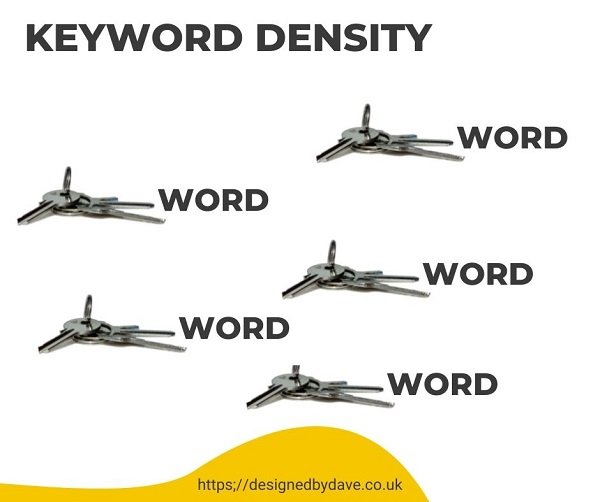Website owners who have begun adding content to their site in hopes of raising search engine rankings have no doubt heard the magic phrase “keyword density”.
The concept of keyword density is simple- keyword density is a measure of how many times a particular word or phrase shows up in a block of written material.
For example, if the word “elephant” was used five times in a five-hundred-word article, the keyword density of the word “elephant” would be one per cent.
Simple enough, right?
While the idea of keyword density might be simple, there are many misconceptions that site owners have about how keywords should be used to best benefit a website.
The following are a few myths about keyword density and some ideas to help you make the most of each word you add to your site.
Myth #1- The more I use a keyword, the higher my search engine rank will be.
There was a time that search engines used keyword density to decide how relevant a particular page was to a search term.
For example, if the term “used car dealer” was used hundreds of times in a small block of text, search engine algorithms determined that the page was highly relevant to people searching for the phrase “used car dealer”.
However, as more sites took advantage of this by “stuffing” their websites and using a phrase frequently in order to gain higher ranks, search engines got wise to the idea.
While keyword density is still important, most algorithms can detect when keyword density is too high, suggesting keyword “stuffing” and actually causing the search engine to ignore the page.
Myth #2- As long as my keyword density is right, the content of my page doesn’t matter.
As part of their continuing efforts to give search engine users the best results, search providers have begun using a process in which they look for a natural level of keyword density.
For example, if an article is primarily about skincare products but the keyword “personal injury lawyer” appears with five per cent keyword density, search engines will likely overlook the site completely when searchers look for “personal injury lawyer”.
To make the most of your site content, you must create natural sounding articles that use the keyword in conjunction with related terms- for example, a site hoping to bring in shoppers searching for “anti-aging skin cream” would use words such as youthful, lotion, dermatology, and younger in their site content.
Myth #3- All the good keywords are paid for by companies, so my keyword density doesn’t matter.
While it is true that many search engines sell keywords to the highest bidder, there is still room at the front of search engine rankings for pages that feature content that is full of relevant terms related to searched keywords.
For example, if your site features a blog that is updated regularly with articles relating to the keyword “affiliate marketing business”, your site will still earn higher search rankings.
The key is to balance keyword density with related words and create pages of interesting articles on your site.
This will bring in searchers looking for that keyword as they see your page near the top of search engine rankings.
This is a technique often used by search engine optimization firms because it is one of the simplest and most effective way to gain the right attention from searchers and search engines.
Keyword density is a measure of how often a word is used, but be careful- overusing keywords or phrases is a sure-fire way to find yourself at the bottom of rankings rather than at the top.
Filling your site with naturally written, relevant content that balances keyword density with related terms can help your page views soar as more users turn to you for the information they are searching for.



0 Comments